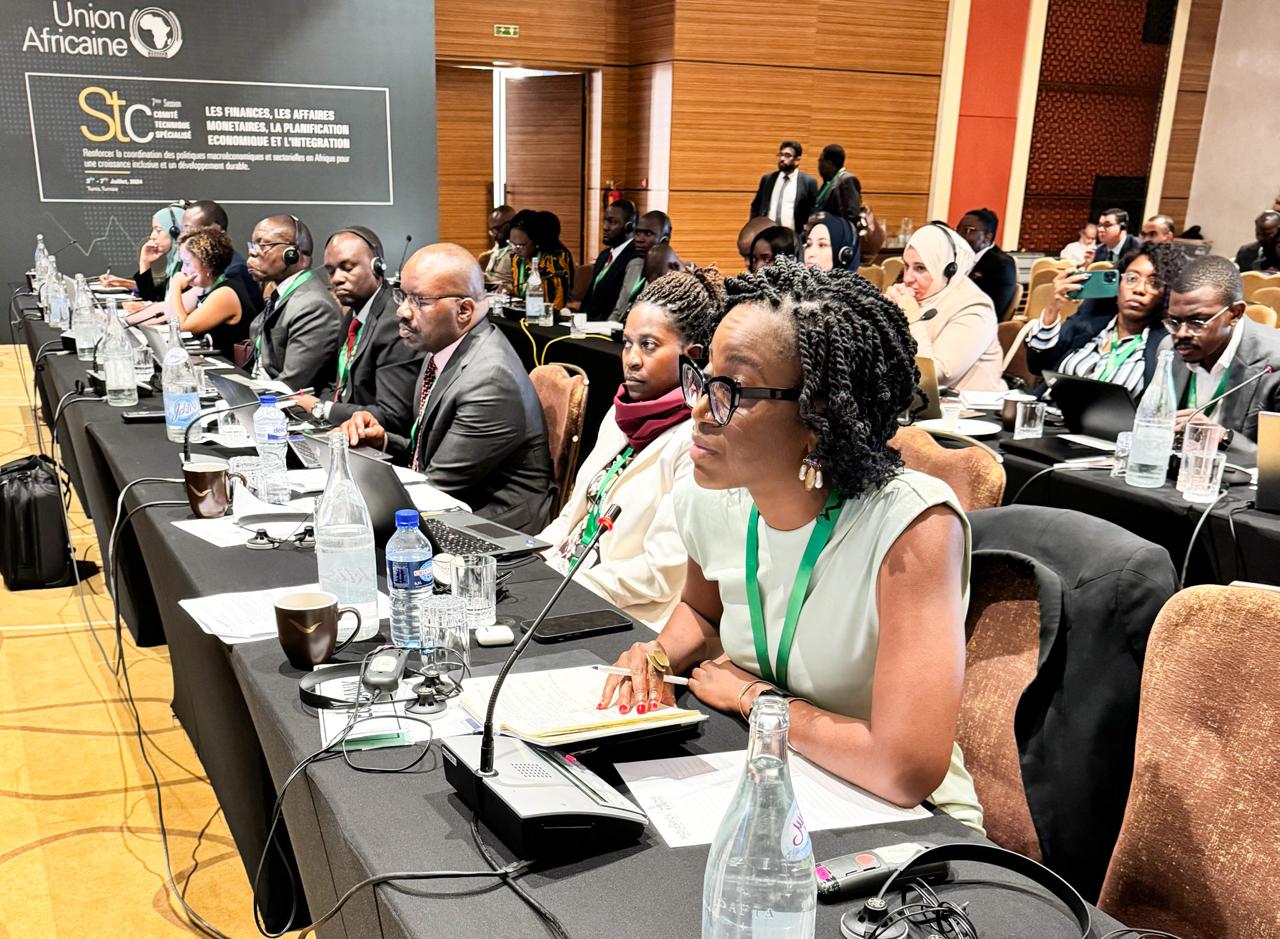Date

African Union (AU) Ministers of Finance, Monetary Affairs, Economic Planning and Integration have adopted TJNA’s flagship Anti-Illicit Financial Flows (IFFs) Policy Tracker Tool, paving the way for its roll-out within the continent. The ministerial declaration was made at the 7th Ordinary Session of the AU Specialized Technical Committee (STC) on Finance, Monetary Affairs, Economic Planning and Integration, which took place from July 6 to 7, 2024, in Tunis, Tunisia.
The declaration followed recommendations by the 7th Ordinary Session of the Specialized Technical Committee on Finance, Monetary Affairs, Economic Planning and Integration Experts’ Meeting that was also held in Tunis, Tunisia from July 3 to 5 2024. The ministers called on TJNA in collaboration with the AU and the African Tax Administration Forum (ATAF) to fast-track the recommendations of the 3rd STC Subcommittee on Tax and IFFs, held in May 2024 in Cameroon, which argued for the implementation of the Anti-IFFs Policy Tracker Tool across Africa.
While discussing the report, the experts drawn from AU member states commended TJNA, the AU and ATAF for the presentations and the successful implementation of the recommendations of the STC Subcommittee on Tax and IFFs. They noted the importance of domestic resource mobilisation and the fight against IFFs and all financial crimes to achieve inclusive growth and sustainable development in Africa.
While making submissions at the Experts’ meeting, TJNA Executive Director Chenai Mukumba noted that the Anti-IFFs Policy Tracker Tool is designed to monitor the implementation of national-level policies to combat IFFs. It draws upon the recommendations of various reports that have extensively documented procedures required to combat IFFs, including the High-Level Panel on Illicit Financial Flows from Africa (commonly known as the Mbeki Panel report) and recent reports like the High-Level Panel on International Financial Accountability and Transparency (FACTI Panel).
“It is a home-grown tool meant to help African countries curb IFFs and drive domestic resource mobilisation. It has gone through rigorous testing and validation processes to align it with the specific needs of Member States and builds upon existing efforts in combating IFFs.” Ms Mukumba added.
The meetings also stressed the need for unified African positions on international tax reforms and domestic resource mobilisation to curb IFFs with the ultimate goal of supporting Agenda 2063’s vision of a prosperous, socially inclusive Africa through coordinated policy efforts.
In her welcoming remarks, H. E. Ms. Sihem Boughdiri Nemsia, Minister of Finance Republic of Tunisia urged delegates to work together to craft pan-African recommendations that will lead Africa to economic transformation. She pointed out that the lack of complementarities has negatively impacted African economies and thus called for harmonisation of policies to ensure that they enhance inter-Africa relations, including those relating to governance.
AU Commissioner for Trade and Industry H. E. Amb. Mr. Albert Muchanga noted that for the continent to successfully address the current African challenges such as poverty, inequality, export of raw materials, aid dependency, periodic debt crises and climate change, Member States need to ensure that there is coordination between their respective sectoral policies and macroeconomic policies.
In their declaration, the ministers also noted the significance of the ongoing efforts on the reforms of the global financial architecture and urged TJNA, AUC and ATAF to continue providing support to the African Group of Ambassadors in New York in the negotiation towards a UN Framework Convention on International Tax Cooperation.
Related resources
For further information about the policy tracker, please contact Francis Kairu at fkairu[@]taxjusticeafrica.net